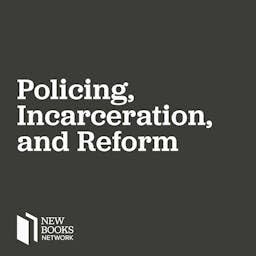A Clean Hell opens the doors of America’s most secretive prison and lets the reader step into the cell to experience all the horrors the Federal Bureau of Prisons tries to keep hidden underground. The federal supermax ADX Florence is the most secure facility in the United States, a dungeon of isolation, sensory deprivation, and psychological disintegration. Here, cruelty isn’t accidental; it’s the design. Built in 1995, the “Alcatraz of the Rockies” was made to cage the so-called worst of the worst: bombers, gang leaders, political enemies, and anyone the government deems too rebellious, too inconvenient, or too visible. Among them was antifascist prisoner Eric King, targeted for his politics, brutally tortured by the Bureau of Prisons, and ultimately entombed at ADX after beating a politically motivated federal prosecution. A Clean Hell: Anarchy and Abolition in America’s Most Notorious Dungeon (PM Press, 2025) is a searing firsthand account from inside the most repressive prison in the United States, a place built not for rehabilitation but for disappearance. It tells the story of Eric’s decade behind bars: the years of surveillance and retaliation, the years locked in solitary confinement, the reality of being known as a “race traitor,” and the daily acts of resistance that kept him—and others—alive. More than just a firsthand survival story and exposé, this is a blistering indictment of the carceral state and the sanitized violence it tries to hide. A Clean Hell is a crucial document of solidarity and struggle inside the belly of the beast and required reading for anyone concerned with mass incarceration, political repression, or the inhumane architecture of the US prison system. Guest: Eric King is an anarchist who was imprisoned in 2014 for acts of solidarity with the Ferguson, Missouri, uprising. During his time in prison, which included almost two years in Federal Supermax, or ADX, Eric coedited the political prisoner anthology, Rattling the Cages: Oral Histories of North American Political Prisoners, published by AK Press, and wrote many other essays about his experiences in prison. In addition to his writing, Eric is also an activist, antifascist, and loving father and husband. Host: Michael Stauch (he/him) is an associate professor of history at the University of Toledo and the author of Wildcat of the Streets: Detroit in the Age of Community Policing, published by the University of Pennsylvania Press in 2025. Learn more about your ad choices. Visit megaphone.fm/adchoices
Voir plus
Voir moins
 Nov 28 20251 h et 1 min
Nov 28 20251 h et 1 min Nov 25 20251 h et 1 min
Nov 25 20251 h et 1 min Nov 18 20251 h et 5 min
Nov 18 20251 h et 5 min 1 h et 2 min
1 h et 2 min 1 h et 2 min
1 h et 2 min Nov 4 20251 h et 1 min
Nov 4 20251 h et 1 min 1 h et 26 min
1 h et 26 min 26 min
26 min
